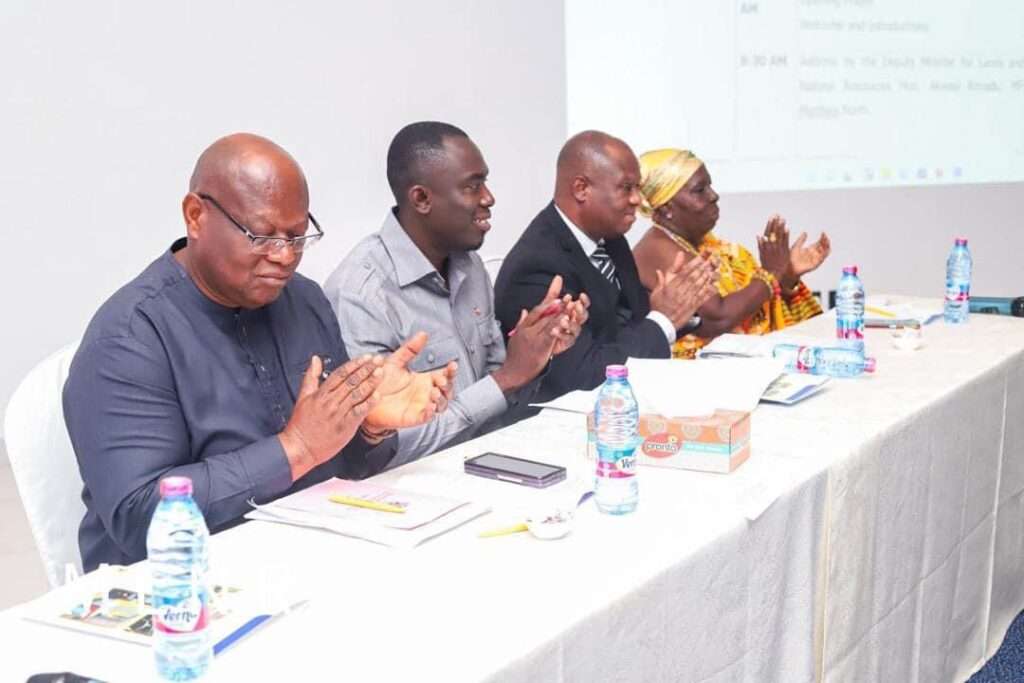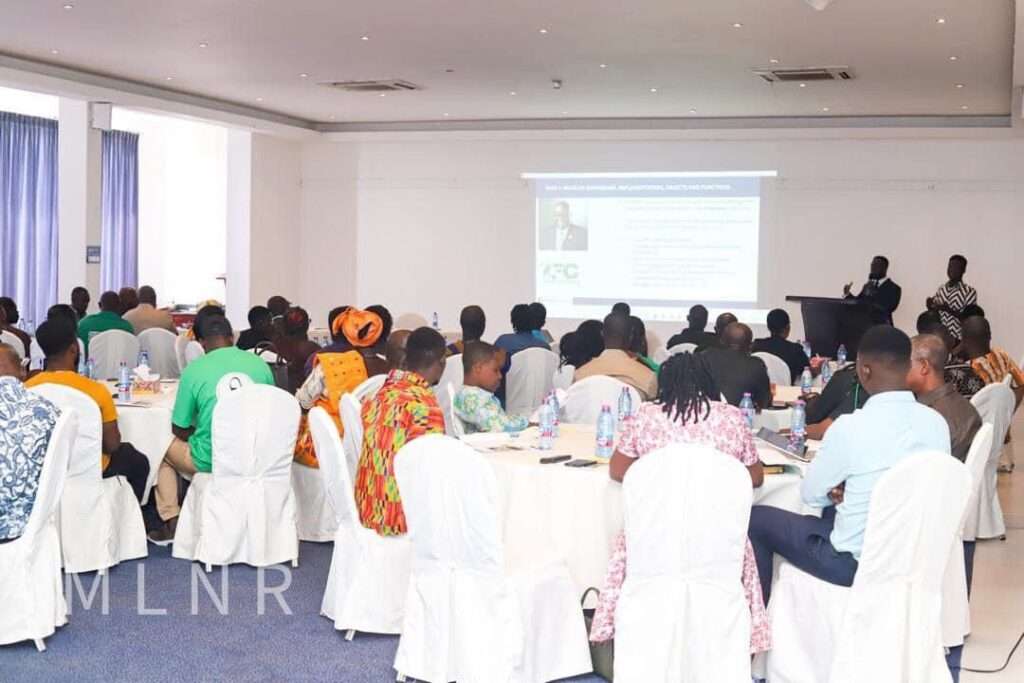The Ministry of Lands and Natural Resources, in collaboration with Ghana’s Forestry Commission, has initiated a significant four-day dissemination workshop on the Wildlife Resources Management Act, 2023 (Act 1115), alongside proposed Legislative Instruments (LIs) to support the establishment and operation of Community Resource Management Areas (CREMAs).
The workshop, held in Takoradi, aims to promote conservation, sustainability, and local involvement in Ghana’s natural resource management. Speaking at the forum on Monday, October 28, the Deputy Minister for Lands and Natural Resources responsible for Lands and Forestry, Hon. Akwasi Konadu, highlighted the transformative goals of the Wildlife Resources Management Act, 2023 (Act 1115).
“Among others, the new law brings Ghana’s wildlife law in conformity with existing policies in the sector and provide for the implementation of international conventions on wildlife to which Ghana is a signatory.”
Hon. Akwasi Konadu, Deputy Minister for Lands and Natural Resources responsible for Lands and Forestry,
The event represents a critical step toward building a framework for wildlife conservation that involves all stakeholders—from government agencies to local communities—ensuring that the mandates of the new legislation are well understood and effectively applied.
The Ministry saw the gathering as a pivotal platform to share insights, collect feedback, and drive forward a collaborative approach for implementing the Wildlife Resources Management Act, 2023.
The Wildlife Resources Management Act, passed in 2023, aims to overhaul Ghana’s outdated wildlife management system, which has long struggled to balance economic development with conservation.
The Act introduces stringent penalties for illegal wildlife activities and creates frameworks for sustainable wildlife management outside protected areas. A central feature of the Act is its emphasis on aligning local practices with international conventions, ensuring that Ghana fulfills its commitments under agreements like the Convention on International Trade in Endangered Species (CITES).

Hon. Konadu reiterated the essential role of Community Resource Management Areas (CREMAs) in engaging local communities in the stewardship of natural resources. Supported by the new Act, the CREMA model has shown considerable success in empowering communities to co-manage wildlife and forest resources, providing a valuable buffer for conservation efforts outside protected zones.
The Deputy Minister explained that for the CREMA initiative to be fully effective, it requires the support of a Legislative Instrument (LI), which will ensure consistent operational standards across CREMAs nationwide.
This LI will address key elements such as management responsibilities, benefit-sharing arrangements, and compliance with wildlife conservation standards set forth in the Act.
“We do not want this document to remain on the shelves in Accra. It should be widely circulated, well-understood, with roles and responsibilities clearly explained for straightforward implementation.”
Hon. Akwasi Konadu, Deputy Minister for Lands and Natural Resources responsible for Lands and Forestry,
Stakeholder Engagement and Feedback

The workshop included an open forum that allowed stakeholders to discuss, ask questions, and provide recommendations on the Wildlife Resources Management Act and the proposed LI for CREMA establishment.
Participants comprised representatives from local governments, conservation organizations, community leaders, and legal experts, all of whom contributed their perspectives on how the Act and CREMA model can be effectively implemented.
The Technical Director for Forestry with the Ministry, Mr. Joseph Osiakwan, reassured attendees that the feedback from stakeholders would be carefully evaluated and integrated into the final guidelines for the CREMA implementation.
“The success of this initiative hinges on collaboration and inclusivity. Every voice here today counts, and the Ministry is committed to ensuring that the recommendations gathered will be factored into the Act’s implementation.”
Hon. Akwasi Konadu, Deputy Minister for Lands and Natural Resources responsible for Lands and Forestry,
Ghana’s move toward an inclusive conservation strategy reflects a growing recognition of the importance of local communities in sustainable natural resource management.
The CREMA model’s grassroots approach not only empowers communities but also aligns with global trends in conservation, where localized stewardship is considered vital for the long-term preservation of biodiversity.
The Wildlife Resources Management Act’s emphasized on involving stakeholders at every level underscores Ghana’s commitment to transparency and accountability.
The Ministry of Lands and Natural Resources pledged ongoing support for this initiative, with further outreach sessions planned in other regions to guarantee widespread understanding and buy-in from all stakeholders involved.
Through these efforts, the Ministry hopes to establish a model for wildlife management that will be recognized as both innovative and effective across the African continent.
READ ALSO: Skales Expresses Frustration With Nigerian Police





















